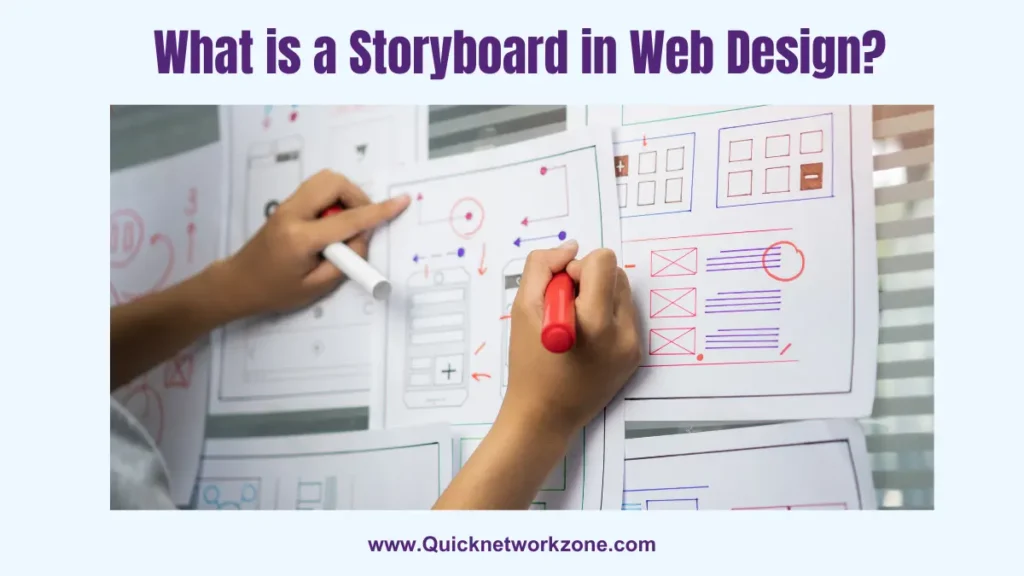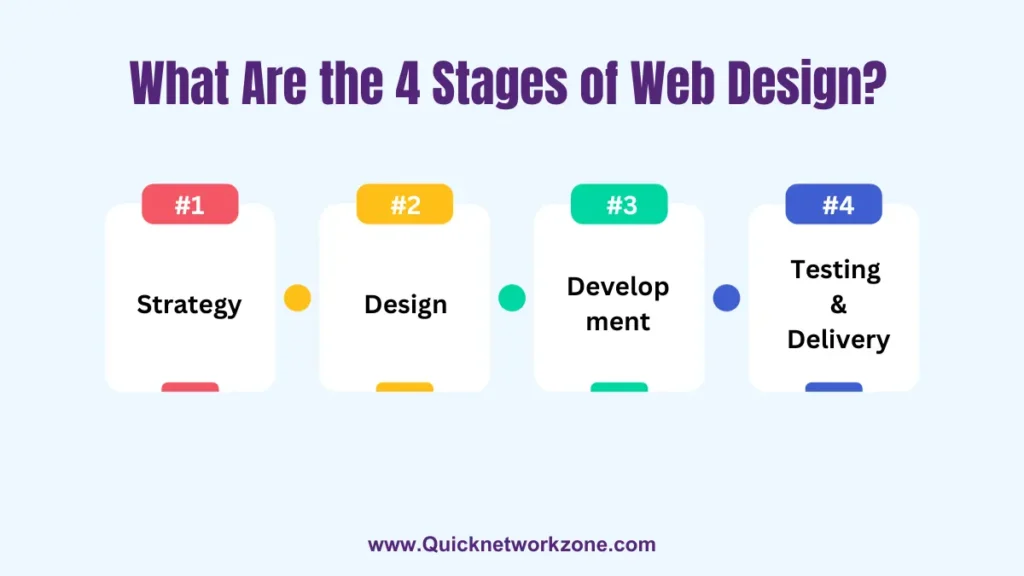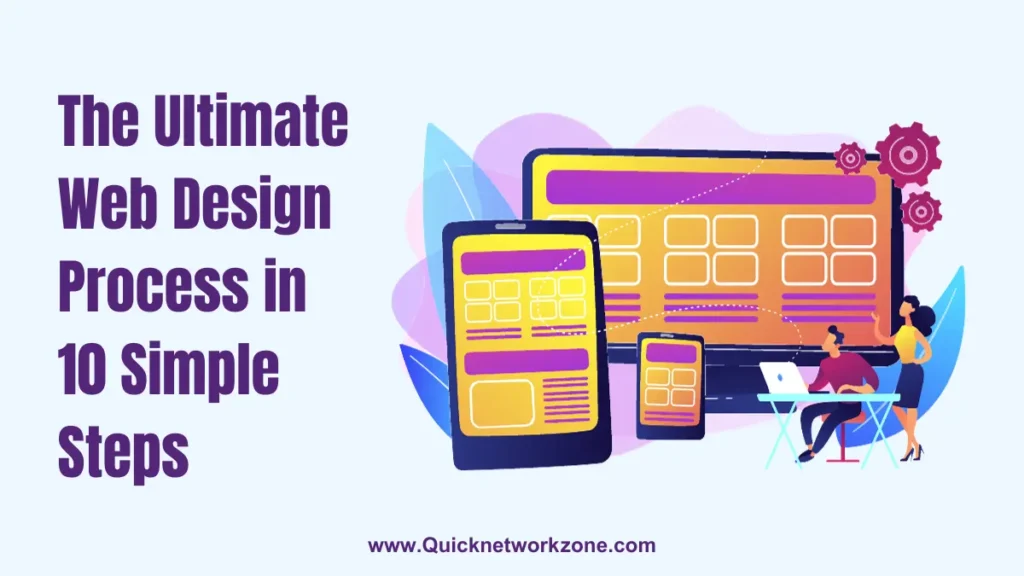Choosing the right web design agency is crucial for creating an effective online presence. Follow these 6 key steps: determine your goals, research agencies’ portfolios, vet their capabilities, request proposals, check references, and interview finalists. Prioritize agencies with proven expertise in your industry, available resources, project management skills, and good cultural fit. Avoid choosing solely on price – invest in an agency equipped to exceed your expectations.
Selecting the ideal web design agency to partner with can be a daunting task. With so many options to sift through, how do you ensure you make the best choice for your business?
This informative guide will walk you through 6 critical steps for evaluating and choosing a web design agency equipped to bring your digital vision to life.
Step 1: Define Your Goals and Requirements
The first step is clarifying exactly what you want to accomplish through your website redesign or creation project. Determining your goals and requirements upfront will shape which agencies are the best fit.
Consider these key questions:
- What are your main objectives with this web project (lead generation, ecommerce sales, etc.)? How will you define success?
- What features and functionality are essential to support those goals?
- Do you need software integration or custom development work?
- Should the site reflect your brand identity? What is your brand persona?
- Who is your target audience? What do they need from the site?
- What is your budget range and timeline for the project?
Document your responses thoroughly – they will guide your entire agency search and selection process. A firm grasp on your goals enables you to zero in on agencies best equipped for the job.
Pro Tip: Prioritize your “must-haves” versus “nice-to-haves” so you identify what is essential in a partner.
Step 2: Research Agency Experience and Portfolios
Now that you know what you want to achieve, researching agencies’ previous work and portfolios is crucial. Their projects demonstrate firsthand their capabilities and expertise.
Pay attention to the industries, specific services, and types of sites they showcase. Do they have extensive experience building sites similar to yours? The more examples relevant to your goals, the better.
Look for these key strengths:
- Sites reflective of your brand and persona. Do their designs naturally align with your desired image, personality, and audience?
- Examples of essential functionality. Do they demonstrate success with features critical for your goals – ecommerce, members areas, complex databases, etc?
- Evidence of strategic vision. Do they articulate the “why” behind design and UX choices? How do they solve problems?
- Case studies and metrics. Do they back up work with measurable objectives, results, ROI?
- Web best practices. Do you see strategic use of SEO, social media integration, responsive design, calls-to-action?
- Creativity and innovation. Do they take engaging new approaches tailored to each client?
Vet agencies carefully here before moving forward – a portfolio full of relevant, successful projects indicates likelihood of success with yours as well.
Editor Note: Also examine their own website – does the quality and design align with what you want to achieve? Pay attention to web best practices.
Step 3: Vet Their Full Capabilities
Impressed by a firm’s portfolio? The next step is assessing their full range of capabilities. The right partner should offer all the services and expertise required to make your project a success.
Key areas to examine:
- Web design and development. What are their design processes and philosophies? Which platforms and technologies do they use? How do they approach UX, accessibility, responsiveness? Look for strategic experts here, not just developers.
- Project management. Do they have structured processes, timelines, milestones, communication plans? How do they ensure budgets and timelines stay on track?
- Marketing integration. Can they seamlessly blend web design with your marketing strategy? Do they have in-house experts in SEO, email, social media?
- Ecommerce expertise. If selling products online, do they demonstrate specialized ecommerce abilities? Look for strategic use of product display, checkout flows, payments, shopping carts.
- Content services. If you need content, copywriting, blogging, infographics – do they offer these or partner with capable freelancers? Quality content is critical.
- Training and support. Do they provide guidance for your team on using and updating the site post-launch? Ongoing support is key.
- Other needs. Consider any other must-have capabilities – custom programming, software integration, hosting services, maintenance contracts, etc.
Taking time here ensures you choose an agency ready to handle all aspects of your project seamlessly under one roof. Avoid partnering with firms lacking in key areas – having to bring in outside help defeats the purpose of hiring an agency.
Pro Tip: Ask to see their internal processes and account management plans. Organized agencies deliver better results.
Step 4: Request Proposals
Once you have a shortlist of qualified candidates, the next step is requesting and reviewing detailed proposals. These provide crucial insights into how they approach projects and what they can deliver.
Each proposal should outline:
- An overview demonstrating understanding of your goals, target audience, and requirements
- Case studies/portfolio samples for similar projects
- Images or mockups bringing your website vision to life
- Detailed scope of work, project stages, milestones, and timeline
- Breakdown of all costs and fees
- Bio of your core project team
- Explanations of capabilities, technology used, design process, etc.
- Project management and communication plans
- Description of training, support, maintenance services
- Terms and conditions
Pay attention not just to attractive designs, but how strategic their thinking is. Do they demonstrate deep understanding of what your project will take? A proposal is your first real sample of their work – look for thought leadership here.
Editor Note: Ask questions if anything seems unclear or incomplete in proposals – thorough responses indicate engaged partners. 💡
Step 5: Check References
Before signing any contracts, take time to check client references. Speaking with past clients offers transparent insights into working with the agency.
Aim for a mix of references across industries to gauge versatility:
- Ask about overall experience. Were they happy with the partnership? How did the agency perform against expectations?
- Inquire about communication. How responsive and available was the account team? Did they provide clear status updates?
- Discuss work quality. How would they rate the strategic thinking, creativity, timeliness, and execution of their project?
- Confirm capabilities. Did the agency deliver effectively on all promised services – design, development, content, marketing, training, support, etc?
- Verify project management. Did the agency adhere to budget, scope, and timeline? How did they handle roadblocks?
- Check launch and results. How smooth was the launch process? How satisfied were they with the finished product and ROI?
- Ask about culture fit. Did agency personas and values align with their organization? Was it a positive, collaborative relationship?
Hearing detailed insider feedback indicates which agencies consistently exceed expectations and are a pleasure to work with. Don’t underestimate the importance of choosing an agency you can trust fully.
Step 6: Interview Finalists
Lastly, set up in-person (or virtual) interviews with finalist agencies before deciding. This gives you a chance to meet your potential team and further gauge culture fit.
Come prepared with questions highlighting their qualifications:
- Experience: Tell me about projects similar to mine you’ve completed in the past. Why were those successful?
- Strategy: How would you approach the key challenges of achieving my business goals through my website?
- Process: Walk me through your typical web design and development process from kickoff to launch.
- Team: Who from your team would be assigned to my project? What are their roles and backgrounds?
- Communication: How will you keep me updated throughout on budget, timelines, issues, progress?
- ** Results:** How will you measure success and ROI on my project? What results can I expect?
- Fit: What makes your agency culture unique? Why are you excited about my project?
Take time after interviews to reflect on intangibles like personality mesh, passion, responsiveness, expertise. Do they seem truly invested in you and your success? An ideal partner will click on both logical and “gut check” levels.
Pro Tip: If time permits, request to meet the actual project manager and team members during interviews. This carries more weight.
Key Takeaways
Choosing the right web design agency sets your project up for success. Keep these tips in mind:
- Clearly define your goals, audience, requirements, budget, and timeline first.
- Vet agencies’ portfolios and demonstrated experience in your industry.
- Confirm they offer full, specialized capabilities to meet all your needs.
- Closely evaluate proposals for strategic vision and fit.
- Check client references thoroughly.
- Interview finalists in person and gauge culture fit.
- Don’t focus purely on price – invest in the agency equipped to produce results and exceed expectations.
Following these steps allows you to make a wise, data-driven decision about which agency is the ideal fit. Take time here, and you’ll find a partner poised to bring your website dreams to life.
People Also Ask (FAQ’s)
How much should a website redesign cost?
The cost of a website redesign varies significantly based on scope and complexity. Simple brochure sites may range from $3,000 to $25,000. Ecommerce or database-driven sites often range from $10,000 to $300,000+. Match your budget to the level of features, functionality, and design you need.
How do I choose between web design agencies?
Focus on proven expertise in your industry first in evaluating agencies. Examine their previous portfolio sites and case studies to assess abilities. Request proposals and check references to gauge work quality. Conduct interviews to determine culture fit. Choose based on expertise, capabilities, and likelihood to achieve your goals.
What questions should I ask when interviewing a web design agency?
Key questions to ask potential agencies: Can you show examples of successful websites you’ve designed for my industry? How do you approach UX and accessibility? What is your design and development process? How will you communicate and manage my project? Who exactly would be my team? How do you define and measure success? What results can I expect?
What makes a good website redesign?
Characteristics of a successful site redesign: Reflects your brand personality and appeals to your audience. Optimized for key goals like sales conversions or lead gen. Mobile responsive design. Easy navigation and intuitive UX. Fast load speeds. Reflects latest web best practices. Integrates visual media and clear calls-to-action. Provides relevant, useful content. Aligns to marketing strategy.
What are red flags to avoid with web design agencies?
Red flags when evaluating agencies: Lack of examples in your specific industry. Underwhelming or outdated portfolio. Vague proposals. Won’t provide client references. Lacking capabilities in key areas. Poor communicator. Inflexible about design directions. Does not ask questions or understand goals. Pitches only on price, not value. Lack of strategy behind their work.
Conclusion
Selecting the right partner to design and build your website is a pivotal decision. Following this comprehensive 6-step approach – defining your goals, researching experience, vetting capabilities, requesting proposals, checking references, and interviewing teams – will enable you to make a smart data-driven choice.
A reputable agency with proven expertise in your industry, available resources, and good culture fit is critical for achieving your online goals. While price is a factor, look for an agency focused on providing strategic value through quality work. Investing in the right team will pay dividends with a website that exceeds expectations and offers strong ROI.
Approach your search as a long-term partnership, not just a one-time project. With the ideal agency team supporting you, your digital presence will be in highly capable hands for years to come.




![Responsive Web Design: Best Practices and Considerations [3 Examples Included] Responsive Design: Best Practices and Considerations](https://quicknetworkzone.com/wp-content/uploads/2023/11/2-1024x576.webp)